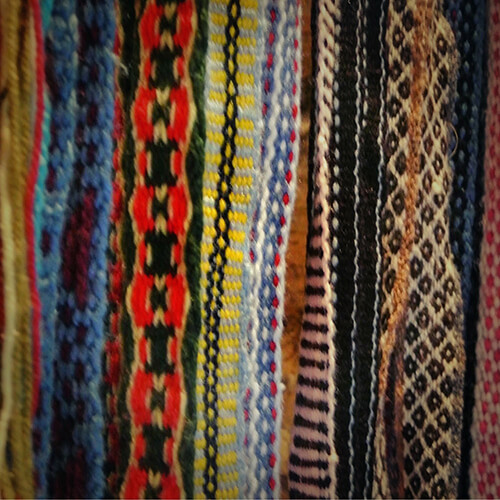“PODPLOMYKI” – SLAVIC BREAD
Traveling along the routes in The Witcher 3: Wild Hunt you can often come across many references to Slavic motifs, which are the cultural heritage of the cradle of the White Wolf. Frightening monsters, roadside shrines or ancient beliefs and rituals - these and other accents drawing inspiration from real Slavic roots have been added to the game in order to create a unique atmosphere, enriching the Witcher's universe. It was no different in the case of the on culinary theme which was smuggled in a form of a simple and characteristic dish: “Podpłomyki”, known as the "bread of the Slavs."
As explained by the book "Slavic Cuisine" by Hanna and Paweł Lis: "most often flat pancakes were eaten (without sourdough). Along with the development of agriculture and culinary techniques, sourdough bread emerged among local tribes. This kind of bread was known already in the Roman period, and the Celts probably has some serious role in its appearance in these areas. The name itself could have been borrowed from Goths. That is why the Slavs presumably knew and ate both varieties of bread since the beginning of their existence on the Odra and Vistula." As a fan fact we will quote the information that "the oldest loaf of bread in Poland was discovered during excavations in the settlement accompanying the Piast castle in Giecz". And what was the difference between the initial and the "classic" bread form known to us today? "Podpłomyki are thin pancakes formed in the fingers from the dough made from a mixture of various flour types, mixed with water and possibly spices, including a small amount of salt. They were baked on hot stones or on tin bowls placed above the fire."




This culinary motif could be discovered by each of you by doing a side quest in Witcher 3 called “Where the Cat and Wolf Play...”, which is a continuation of the “The Beast of Honorton” quest. Geralt meets a girl in her path, and thanks to the Witcher’s help Little Millie reaches the village of Oreton. There lives her relative, Aunt Lucy, who specializes in kneading delicious pancakes, known in Poland as "podpłomyki". It may be misleading to call this bread at the beginning as "pancakes", because most of you probably associate the term "podpłomyki" as unleavened flatbreads. Why, then, could the game creators decide to do such a translation? We can only guess, although there is a theory explaining their decision. Referring to the above description from the Lis couple’s book that podpłomyki are a kind of cake it’s not difficult to go a step further and ease the understanding for gamers throughout the world by calling them simply pancakes.




From a culinary point of view the choice of podpłomyki as a nourishment for residents of Velen is a deliberate procedure of game developers. They were daily, tasty and crunchy breads with a relatively long durability. They could be used as a addition for other dishes such as soups or as a travel provisions... but they also did well in difficult conditions when food resources were scarce, due to its simple composition. Let us not forget that this part of the land was devastated by the war turmoil, which greatly depleted the supplies of the local community. Therefore, the choice of elegant dishes for these locations would be in contrary to the overall image of Velen and the surrounding area. It is worth mentioning that, in fact, podpłomyki can also be prepared from millet groats, or with the addition of acorn flour, from which so-called hunger cakes are made. This kind of bread was used by Slavs in the attempt to kill hunger, when their pantry was empty. Certainly, Aunt Lucy would make her way through difficult times by baking her famous pancakes... or podpłomyki to be more precise!


© Witcher Kitchen 2024
powered by Nerds' Kitchen PL
© Witcher Kitchen 2024
powered by Nerds' Kitchen PL
The Witcher Kitchen fan project is set in the universe created by Andrzej Sapkowski in his series of books.
The Witcher®, GWENT®, CD PROJEKT® are registered trademarks of CD PROJEKT S.A.